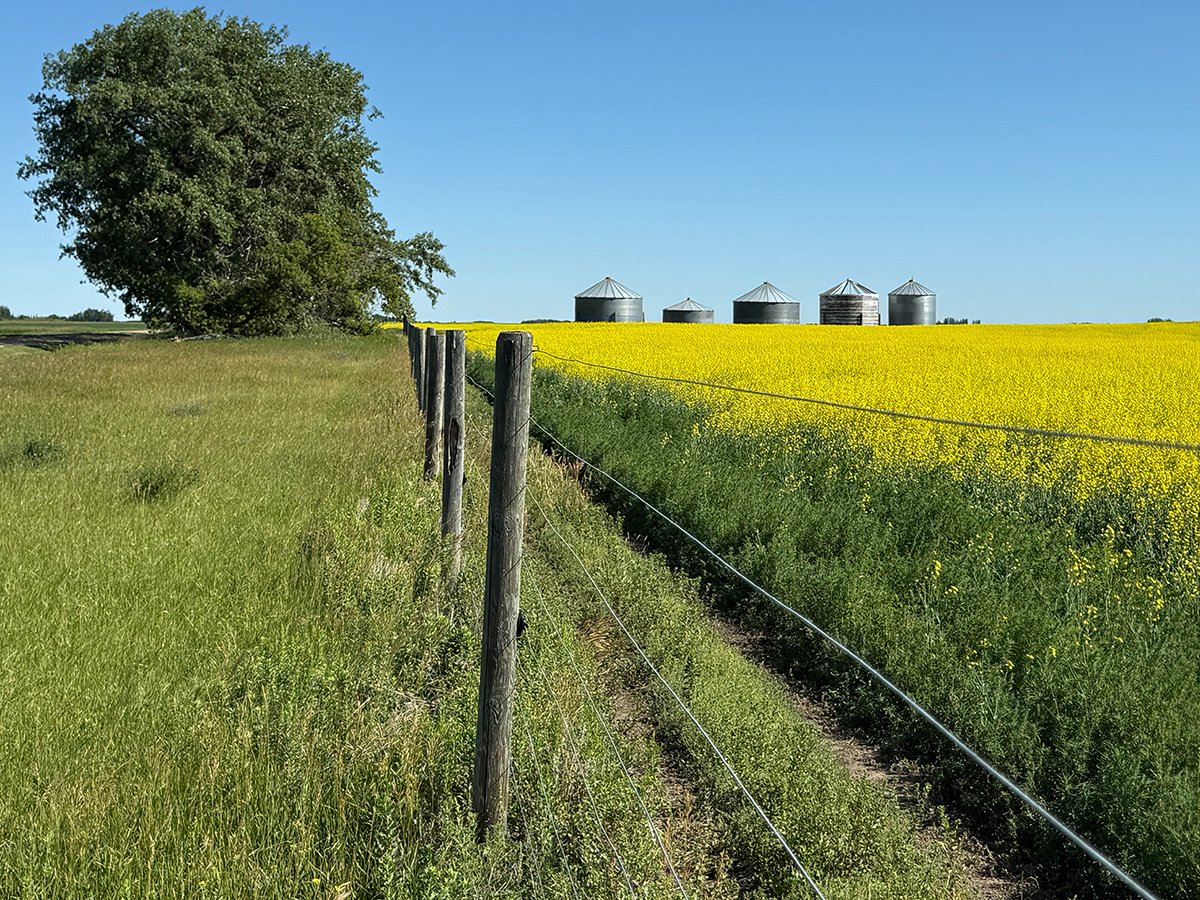Farcical help
Like me, a lot of you farmers experienced excess moisture conditions to prevent us from seeding the acreage we had fully intended. Of course, propaganda news went out about all the aid that would be pouring in on these acres, crop insurance and the lineup of government bureaucracy with banners that only makes good reading on your paper, little else.
I am only a small farmer on a half section and I had 125 acres that I considered as chem-fallow. This spring, we managed to mud in about 80 odd acres of it into canola and crop insurance deemed I did not seed 42 acres.
Read Also

Producers face the reality of shifting grain price expectations
Significant price shifts have occurred in various grains as compared to what was expected at the beginning of the calendar year. Crop insurance prices can be used as a base for the changes.
Now here’s how they screw you. Through their methods of deductions that always play into their favour, I ended up with a mere 14 acres eligible for the $50 payment. Fourteen out of 42, quite a cut, eh? Naturally, all other program payments promised will follow crop insurance eligibility.
What a farce.
So when you read about all this help that’s supposed to help the farmer, don’t believe even half of it, for most of it is pure BS and, coming from the direction it does, little wonder.
– Harry Beskorovayny,
Gronlid, Sask.
Market choice
The article by Nettie Wiebe in the Aug. 24 issue of the Western Producer, in which she draws a parallel between choice in wheat and barley marketing and polluted rivers, is unbelievable at best.
Marketing choice for growers of wheat and barley is about opportunities and the future of agriculture in Western Canada.
We are talking about: 1) a monopoly that has existed for more than 60 years while the state of agriculture has declined to critical. 2) A monopoly that treats farmers differently in Canada depending on location.
3) A monopoly which allows multinational feed companies to export wheat and barley acquired on the open market in Western Canada, while jailing farmers for the similar activities. 4) A monopoly which is auditing farmers’ bins. 5) A monopoly which pulled out of the world wheat market in 2002-03 forcing farmers to settle for a government subsidy, while growers in the rest of the world enjoyed record prices.
6) A monopoly which was a major factor in preventing a farmer-driven pasta plant from being built in Western Canada.
7) A monopoly which attempts to silence critics by threatening lawsuits. 8) A monopoly where costs increase without regard to farmers’ financial states.
9) A monopoly whose chairman, Ken Ritter, tells farmers they cannot do anything about world prices, despite claims that a single desk delivers higher prices.
10) A monopoly whose interference with the grain handling and transportation system results in delivery of wheat and barley to customers taking up to 80 days where as non-board canola is 19 days. 11) A monopoly where bureaucrats decide when and how much wheat a farmer is allowed to sell.
More importantly, we are talking about opportunities to add value to our durum wheat, reduce commercial storage costs, access small markets, take advantage of spikes in world prices, reduce marketing costs by having buyers compete for our business, and allow farmers as independent businesses to decide for themselves with whom they will conduct business.
Readers of the Western Producer can be assured that market choice for western Canadian farmers will not result in polluted rivers.
– Albert J. Wagner,
Stony Plain, Alta.
Skilled truckers
We take offense to Ed White’s article (Farmers can’t compete with oil patch wages, WP, Aug. 24.) He calls truck drivers “semi-skilled” workers. Mr. White has obviously never driven a gravel truck or a semi for a living.
My husband does. He hits the road at 6:30 a.m. and parks his rig at 6:30 p.m. or later, five days a week. He has done so for 30 years.
During that time he navigates city streets in Alberta, driving a 23,700 kilogram truck. He does this for 10 to 12 hours a day, five to six days a week. He makes his way amongst the hot rodders, drivers with road rage and just plain ignorant drivers.
In our humble opinion, this takes a lot of skill. I challenge you, Mr. White, to drive with my husband or any other trucker for one week straight. Perhaps then you will have a better understanding of truckers and how little recognition, financial and otherwise, they receive. To call them semi-skilled is a harsh blow to hard- working individuals who deserve more respect that they presently receive.
We hope this letter opens your eyes and makes you appreciate the next skilled trucker …. Be respectful of him as you cut him off in traffic and he manages his big rig so he doesn’t kill you.
As you speed by him, instead of honking and give him the third finger salute, why not let him in the lane, smile, wave and let him do his job.
– Claude and Diane LaBrie,
Spruce Grove, Alta.
Winter wheat
In response to a letter from Craig Shaw of the Alberta Winter Wheat Producers Commission (Aug. 24), I would like to clarify some misconceptions about price comparisons between Canadian and American winter wheat.
The current winter wheat base grade for CWB Producer Payment Options No. 1 Canada Western Red Winter wheat is not an appropriate comparison to U.S. Hard Red Winter wheat in terms of quality and price.
Generally, 1CWRW has lower protein and lower consistency of quality than typical U.S. HRW and millers do not consider it a substitute.
This Canadian base grade does not reflect returns for CWRW Select wheat produced under CWB identity preserved contracts, which has been bred for improved consistency, quality and customer acceptance.
Currently, 1CWRW Select 11.5 percent returns a $15 per tonne premium over conventional, base-grade 1CWRW.
The Select program does not include CDC Falcon, which has inferior milling characteristics and was grown by only one percent of Alberta winter wheat producers this year.
To provide a slightly more relevant basis to compare Canadian and U.S. winter wheat prices, the CWB plans to change the PPO base grade for future years to 1CWRW Select with 11.5 percent protein.
The expected return for pooled 1CWRW Select is also being included on the CWB’s monthly Pool Return Outlooks.
It is untrue that winter wheat returns for farmers are consistently higher in the U.S. than Canada, as Mr. Shaw purports. In fact, CWB analysis indicates the contrary. Western Canadian farmers can test this for themselves by using CWB programs to take advantage of pricing opportunities when they exist.
Results from the past crop year provide a pretty clear indication of whether there really was a price advantage at U.S. elevators.
During 2005-06, more than 75,000 tonnes of non-organic wheat were signed to the CWB’s Daily Price Contract (a program based on U.S. elevator prices) by 406 producers.
Less than 760 tonnes of non-organic wheat were actually delivered to the U.S. by five farmers. Of that, 550 tonnes were feed wheat – and none were for winter wheat.
– Ward Weisensel,
Chief Operating Officer, CWB,
Winnipeg, Man.
Little respect
How can a minority Conservative government, whose existence is based on lies and deceit, insist they have the authority to destroy the single desk selling option of the Canadian Wheat Board?
Their claim that the last election automatically gave them that right is egotistical nonsense. They got elected by a slim majority.
The majority of voters live in cities and towns and know nothing about the CWB. Any who voted for the present so-called Conservative government could have done so for any number of reasons, none of them having anything to do with the CWB, whereas bona fide western Canadian grain farmers, knowing how important the CWB has been to them in the past, have voted overwhelmingly to keep the CWB’s single desk selling advantage.
(Prime minister Stephen) Harper has reneged on other election promises. Now he is audaciously determined to destroy something that has proved its worth to western grain farmers.
How dare he show so little respect for the wishes of those who know the true value of the CWB’s single desk selling option?
Whose drum does he march to?
– M. J. Burpee,
Hughenden, Alta.






![Protesters crowd a street carrying signs that read, "Global warming real. In other news, water is wet," and "Stop denying the [blue painted pic of the Earth] is dying."](https://static.producer.com/wp-content/uploads/2025/07/29145152/158171_web1_2019-10-18T222818Z_1221762151_RC14C26A65A0_RTRMADP_3_CLIMATE-CHANGE-THUNBERG-1200-220x165.jpg)








